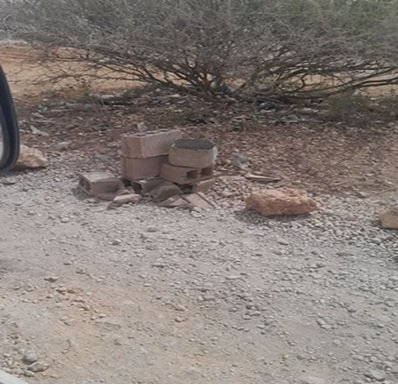By Mohamed Abdiqafar H. Hussein
President Said Abdullahi Deni recently launched the long-awaited construction of the Galkayo–Harfo road, a move that has sparked more questions than applause. While some view it as a sign of progress, many Puntlanders see the timing and manner of the project as politically motivated, being a public show designed to score points rather than deliver genuine development.
The road, which spans 67 kilometers, was initially part of a major infrastructure initiative funded by the African Development Bank and the European Union. This interstate road project—requested by the Federal Government of Somalia—included multiple roads across the country: Beledweyne to Galkayo (8 km), Galkayo to Harfo (67 km), Luuq to Doolow (80 km), among others. The funding and implementation standards were negotiated between the federal government and international partners, with oversight to be maintained at the federal level, as is customary in cross-state infrastructure projects.
Initially However, the Puntland government rejected federal oversight and asserted full control over any project executed within its territory, even federally coordinated ones. The standoff between Garowe and Mogadishu stalled the project, reflecting deeper political tensions between President Deni and President Hassan Sheikh Mohamud. Many trace this discord back to the 2022 presidential election when Deni, once seen as a kingmaker, found himself sidelined.
Amid this deadlock, the youth of Mudug took to the streets, protesting against decades-long neglect. Their demands were not unreasonable: better drainage systems, access to hospitals, schools, airports—and a decent road between Galkayo and Harfo, which remains one of the worst in Puntland. This road is not only vital to the people of Mudug but serves as a major corridor for goods moving from Bosaso to southern Somalia.
In response, the Puntland authorities deployed ministers and MPs to meet with the youth. The talks were initially positive, and the government pledged that road construction would begin by June 15, 2025. But optimism quickly faded. Just days later, five youth leaders were arrested in pre-dawn raids under the pretext that they were planning to disrupt the Eid festivities. The arrests, widely condemned, were followed by swift releases and threats to the youth regarding any future protest. After they had been arrested, their phones were searched to see if any money had been transferred from Mogadishu. Many Puntlanders saw this as an attack on the constitutional right to peaceful protest.
Meanwhile, no agreement has been reached between Puntland and the federal government to unblock the original donor-funded road project. Community elders urged President Deni to revisit negotiations. Instead, he announced that Puntland would self-fund the road, launching a symbolic stone-laying ceremony on July 3 in Ba’aad Weyn. He left the same day, notably avoiding a visit to Galkayo, a stronghold of his support, but now suspected of harboring more dissent.
The new plan announced by the Puntland government reduces the road to 37 kilometers plus 3 kilometers of city streets—40 kilometers in total—at a cost of $4 million, entirely funded by Puntland taxpayers. In contrast, the original 67-kilometer road was to be built with $18 million in donor funds. The math does not add up, and neither does the logic. Why would a cash-strapped government choose to spend scarce local funds on a project already funded by donors?
This question became even more pressing when reports emerged that civil servants had not been paid for months and that engineers were leaving Puntland due to the lack of job opportunities, something a Puntland minister recently admitted during a parliamentary session.
The answer appears political. President Deni’s decision is seen as a way to portray Puntland as self-reliant while deflecting youth pressure. Yet the project has barely got off the ground. Within a day of the stone-laying, the rocks were quietly removed, No visible construction has yet begun.
In frustration, the Mudug Development Forum—formed after the youth arrests—announced a meeting for July 30 to revisit the protest’s demands and assess government accountability. In response, the Mayor of Galkayo issued a warning: no political meetings would be allowed without official permission. This echoes a similar warning issued in Garowe when presidential candidate Guled Salah attempted to hold a meeting. That letter was later walked back, with officials claiming it was the mayor’s decision not the president’s. But few believe that anymore.
The crackdown on civic engagement reveals a disturbing trend: peaceful political activity is now framed as disloyalty. Only three traditional elders attended the Ba’aad Weyn ceremony. One elder urged the president to allow the July 30 meeting, assuring him that it would not remain apolitical. Shockingly, a Puntland MP interrupted, saying, “Sir, the meeting cannot be held. … It has been organized by Mogadishu.” When the elder responded calmly, the MP accused him of being “one of them”—a traitor. President Deni was present. No apology followed. This moment made clear what many now believe: in today’s Puntland, you’re either with the government or against it. There is no middle ground.
President Deni, now in his second and final constitutional term, should be working to unify Puntland and solidify a legacy of stability and reform. Many hoped he would finally usher in one-person-one-vote elections and heal the divisions of past years. Instead, his government is acting increasingly authoritarian, using development projects for political theater, and silencing dissent.
The most pragmatic path forward is clear. The African Development Bank-funded road must be reclaimed. The $4 million set aside for a half-built road should be redirected to more urgent needs: health, education, city infrastructure, and salaries. Losing $18 million in donor funding over personal politics is not just poor governance. It’s a betrayal of Puntland’s development and would lead to failure of his political ambition.
The Galkayo–Harfo road symbolizes more than a stretch of asphalt. It stands for what Puntland could be—and what it is failing to become under President Deni’s leadership.
Mohamed Abdiqafar H. Hussein
Email: mohabdhus@gmail.com


Leave a Reply